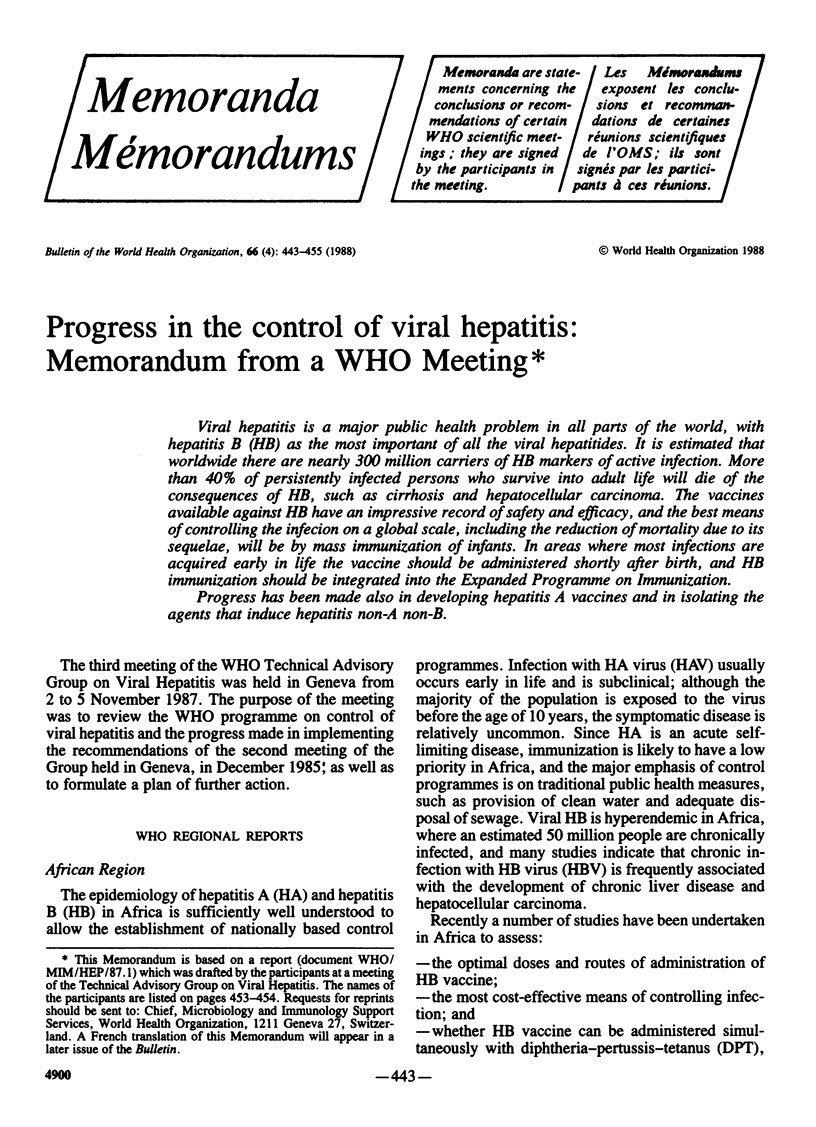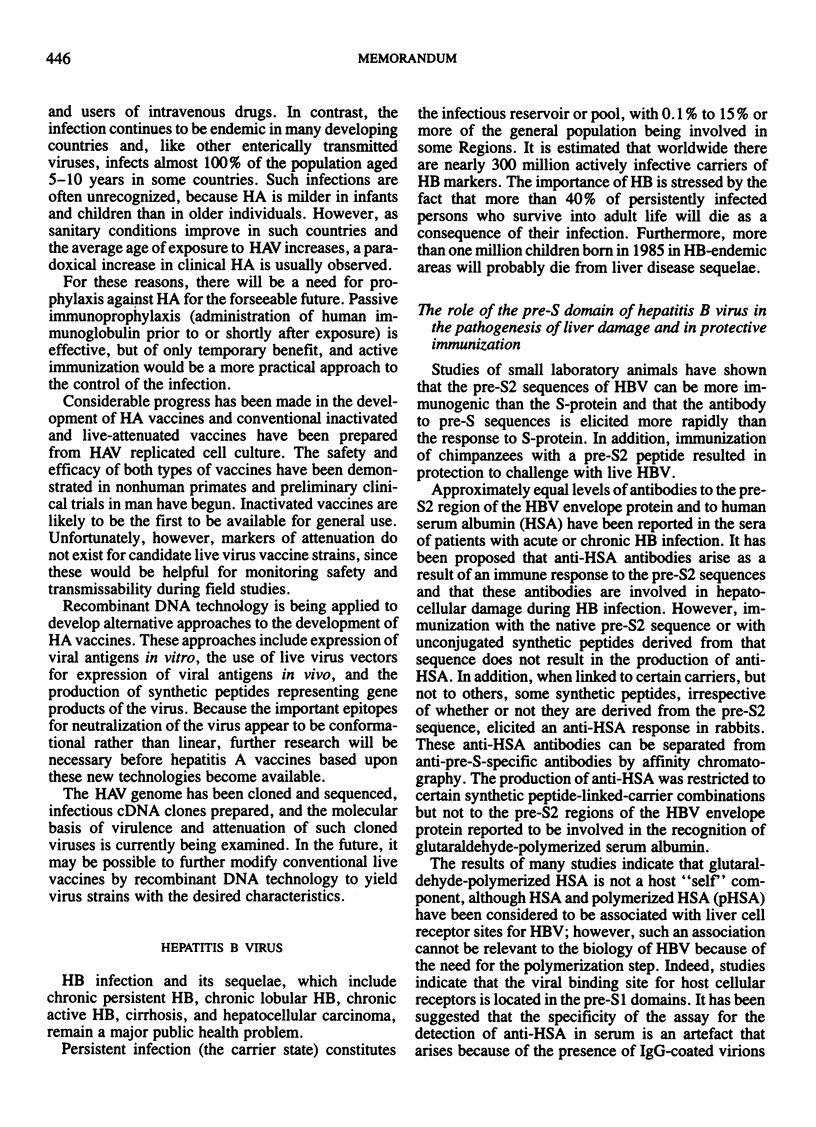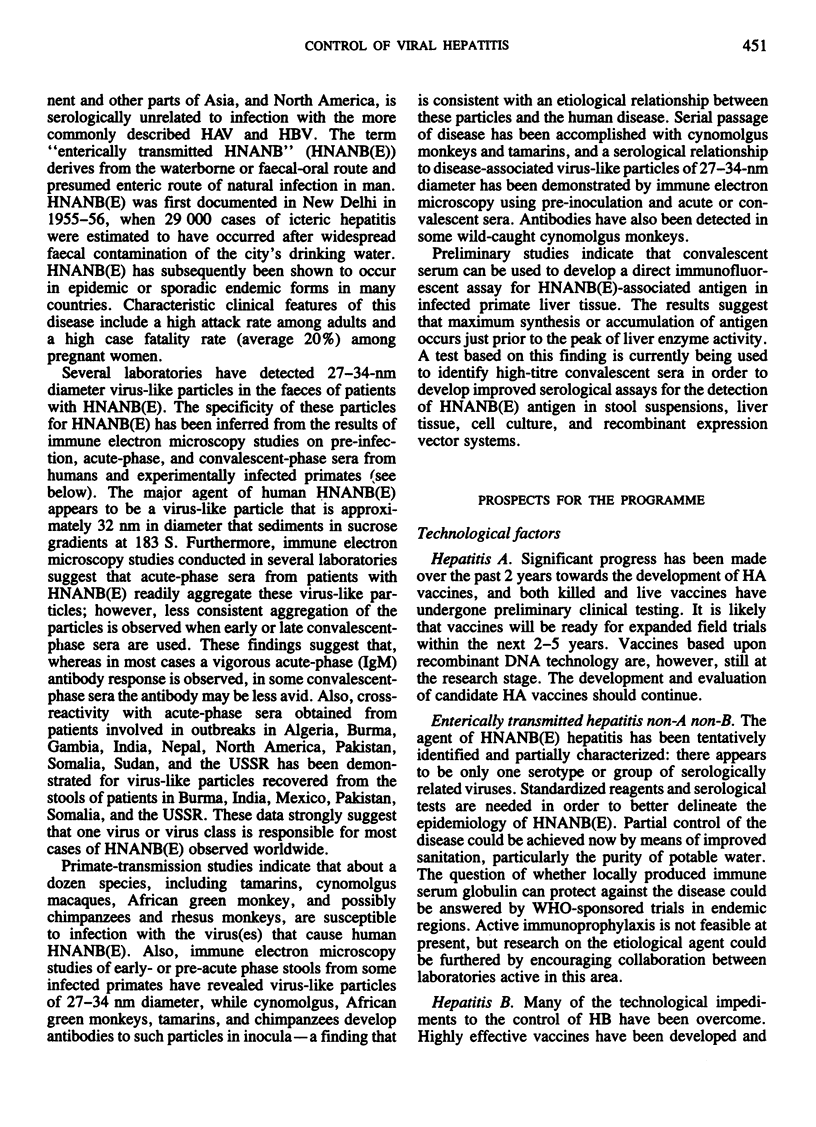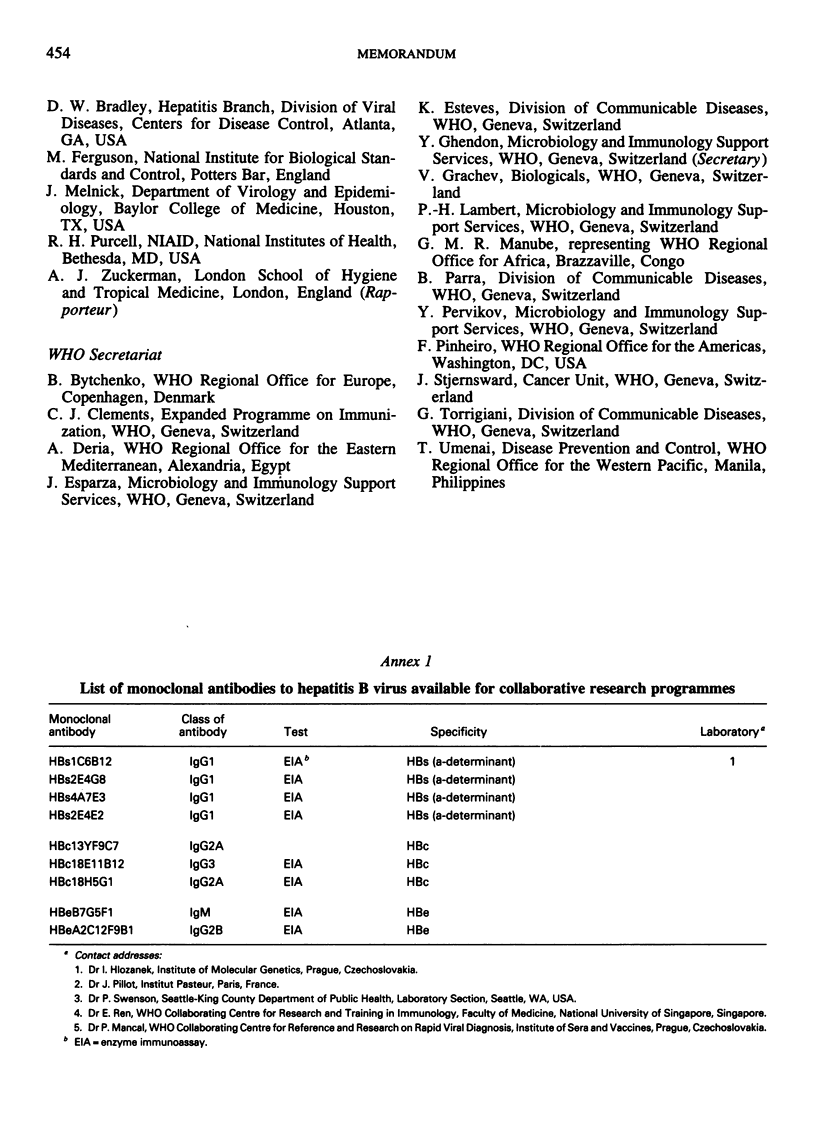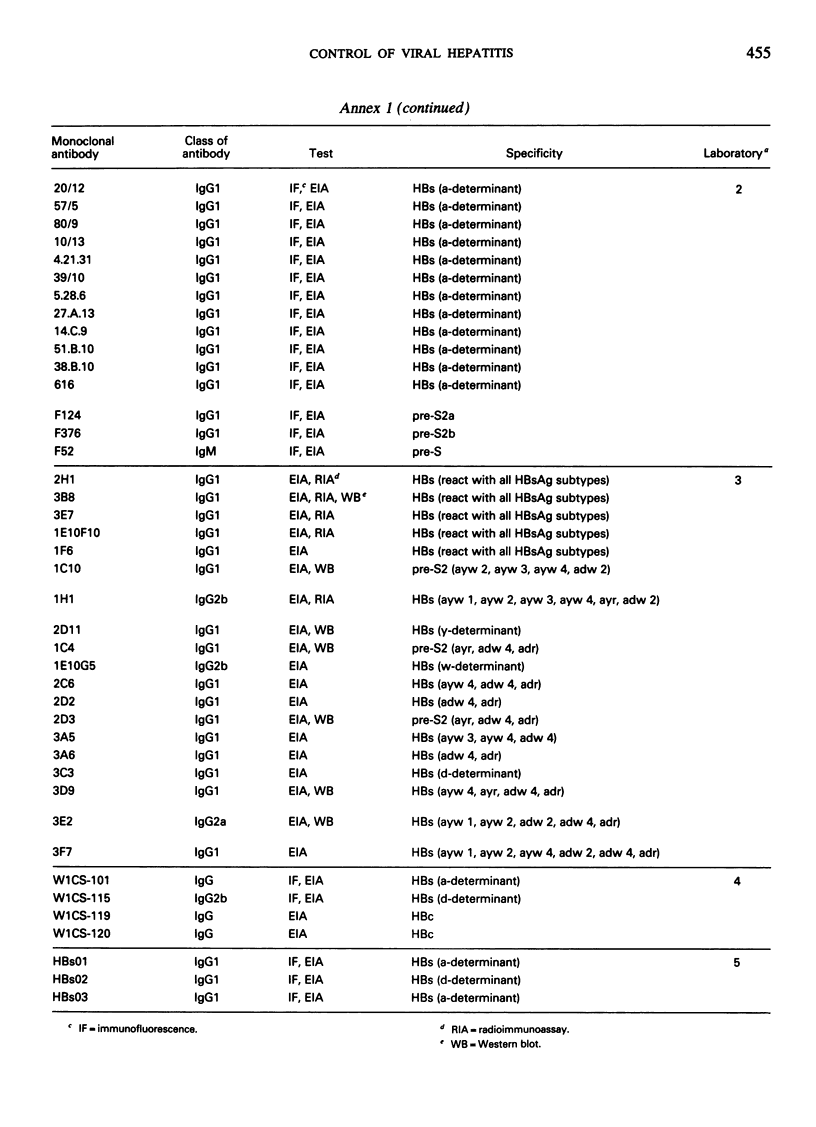Abstract
Viral hepatitis is a major public health problem in all parts of the world, with hepatitis B (HB) as the most important of all the viral hepatitides. It is estimated that worldwide there are nearly 300 million carriers of HB markers of active infection. More than 40% of persistently infected persons who survive into adult life will die of the consequences of HB, such as cirrhosis and hepatocellular carcinoma. The vaccines available against HB have an impressive record of safety and efficacy, and the best means of controlling the infection on a global scale, including the reduction of mortality due to its sequelae, will be by mass immunization of infants. In areas where most infections are acquired early in life the vaccine should be administered shortly after birth, and HB immunization should be integrated into the Expanded Programme on Immunization.
Progress has been made also in developing hepatitis A vaccines and in isolating the agents that induce hepatitis non-A non-B.
Full text
PDF